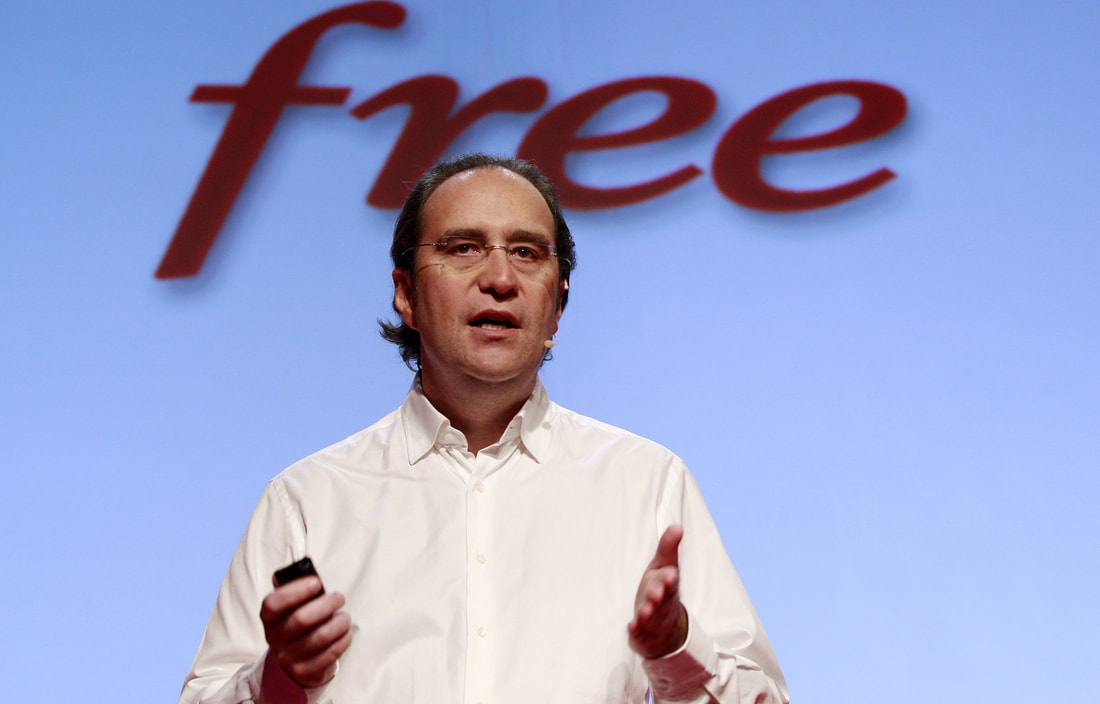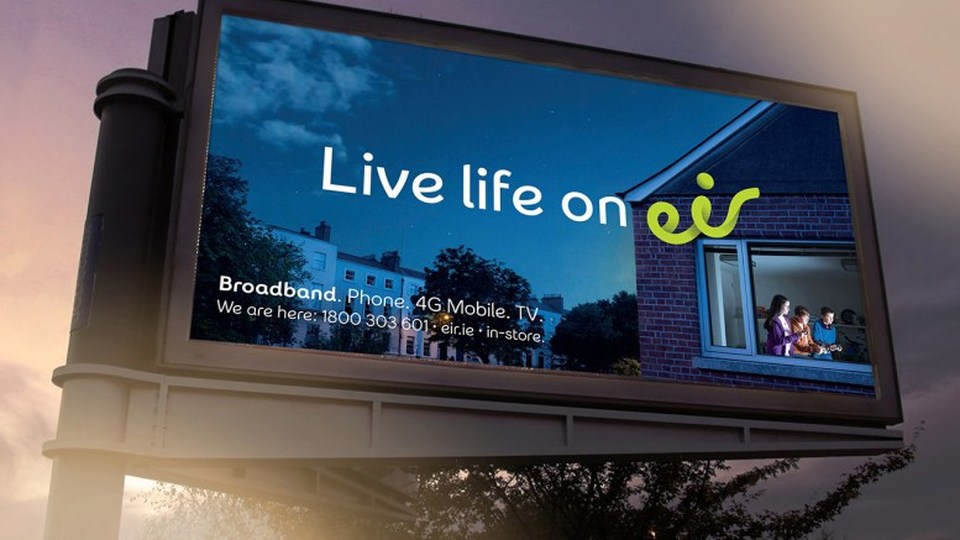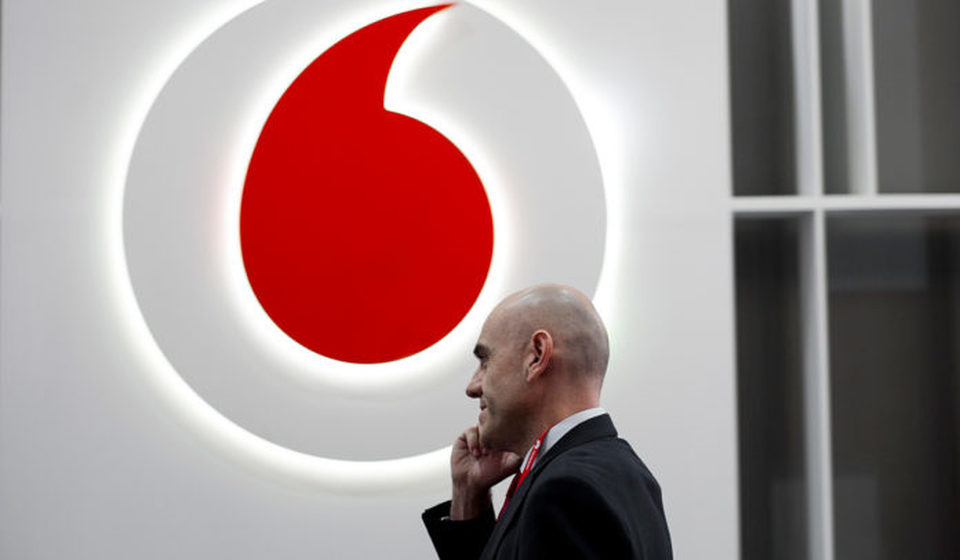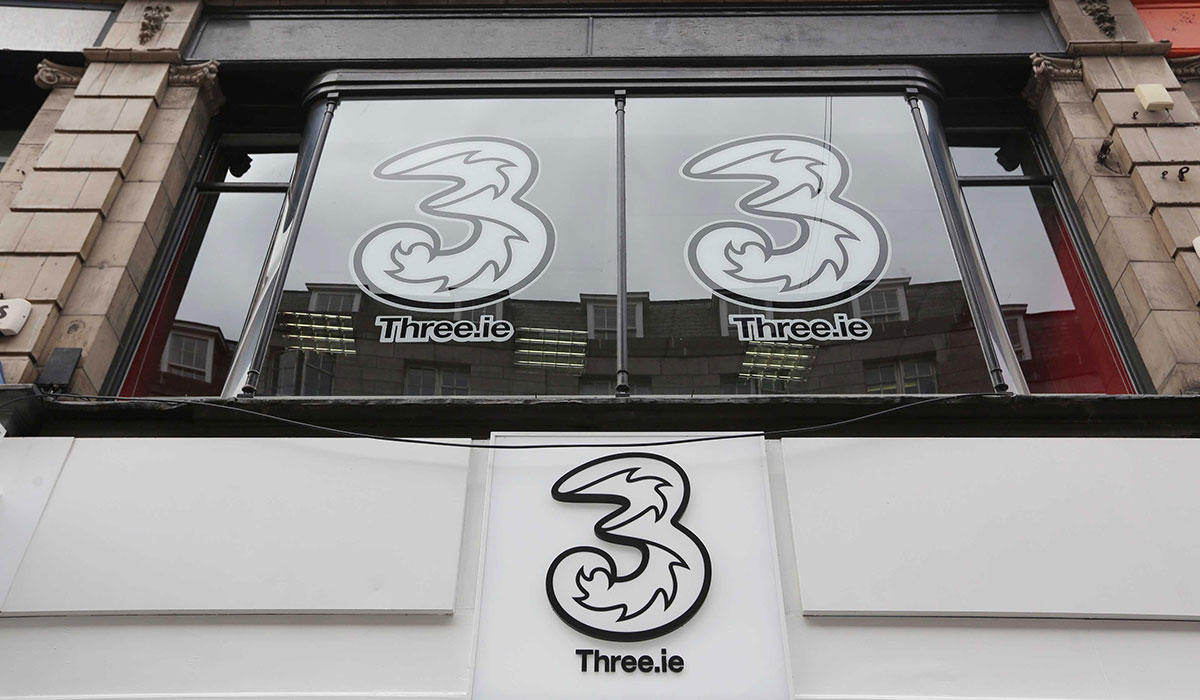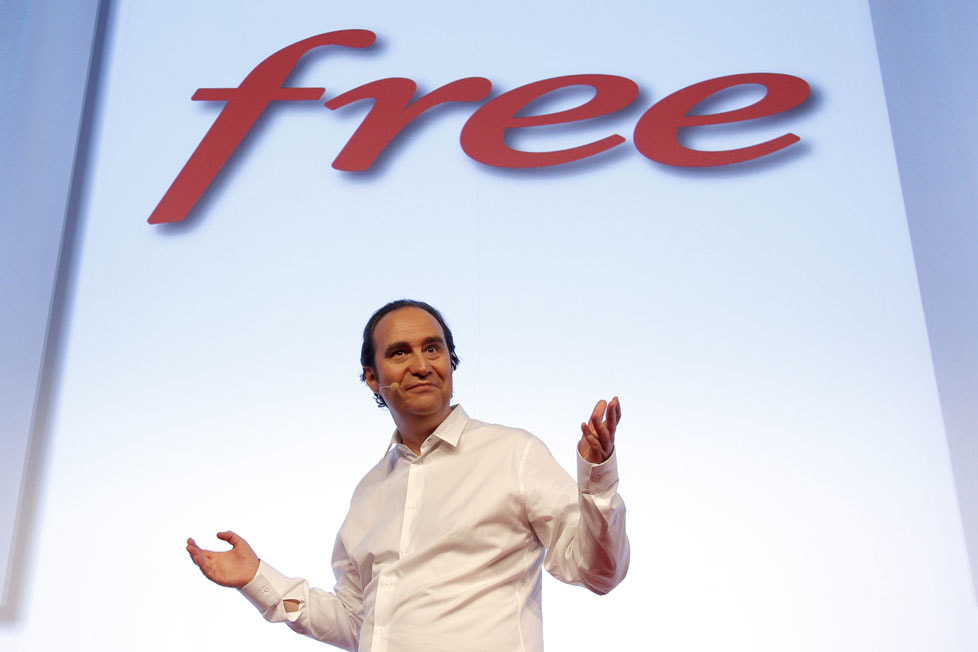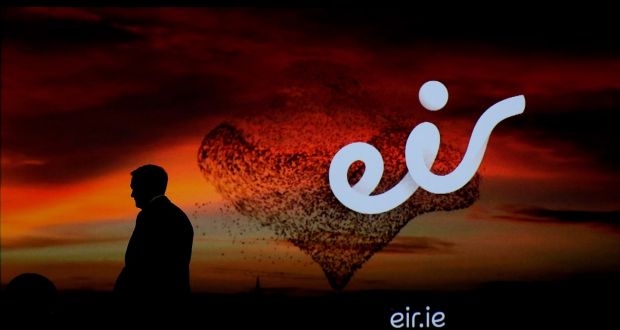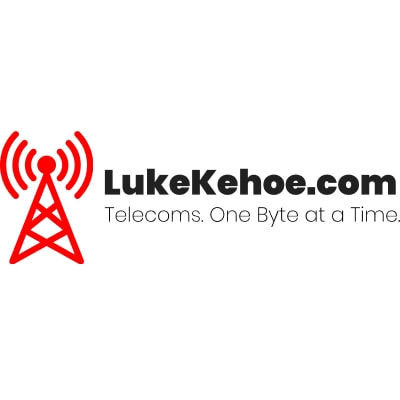Is Xavier Niel on the verge of shaking up the Irish Mobile Market with Eir?
Niel has upended the mobile market in France and Italy, will he do the same in Ireland and which companies will be the victims?
Published 06/08/18
At the beginning of this year, it was widely reported that Xavier Niel, a French Billionaire, had secured a majority stake in Eir, Ireland's largest total communications provider. While many would have looked on this as yet another meander in Eir's troubled past, it could also be viewed upon as the single best thing to happen to the company in years. Heck, Eir has seen nine different controlling shareholders since its inception and has undergone countless rebrands and staff layoffs. However, this time things will be different, very different.
This time, Eir will be controlled by Xavier Niel, the man responsible for revolutionising the French mobile market with Free Mobile. More recently, Niel and Iliad have moved into Italy, creating shockwaves in the market by offering excellent plans at cut-throat prices. It's fair to say that Niel likes to turn markets upside down, offering more value and choice to consumers.
Firstly, we need to investigate Niel's moves in other markets to better forecast what he may do with Eir in Ireland.
Iliad has been so successful in Italy, garnering one million customers in just fifty days, that long-standing rivals such as Vodafone and TIM have seen their profits dive. This same disruptive philosophy was first employed with Free Mobile in Niel's home country of France back in 2012. Before Free moved into the mobile business, French consumers were forking out too much money for their mobile plans, in plain English, they were being ripped off by Orange, SFR, and Bouygues Telecom. Niel saw this stagnant market in need of a new player, a player that would, in his own words, "liberate" the French consumer.
Fast forward to today and nearly 14 million French consumers have been liberated, using Free Mobile as their network of choice. The French mobile market is a ruthlessly competitive land now, with consumers enjoying some of the best prices in the world. But Niel and Free Mobile didn't get here by accident, the company made a series of bold moves that paid off. Before Free moved into mobile, the company had a large fixed broadband customer base, like Eir, and used this as a pool from which to draw new customers. The company went as far as installing vending machines for SIM cards around the country and slashing prices while, at the same time, offering data allowances so large they made Free's competitors poop their pants.
But Niel isn't just about shaking up a market and cutting prices, Free Mobile has invested heavily in its network to bring world-class mobile speeds to French consumers, forcing its competitors to do the same. But, as more and more people flocked to Free Mobile, the company struggled to cope with demand. To solve these issues, Niel provided a free femtocell to customers who experienced service issues, a device to boost signal, that would usually cost several hundred euro.
Now, let's go back to Iliad's launch in Italy earlier this year. The company is providing one plan, one plan that beats them all. Just to understand why people are going crazy for it, pay attention. Iliad is offering 40GB of 4G data, unlimited calls and texts all for €6.99. There are no strings attached, it does exactly what it says on the tin.
This time, Eir will be controlled by Xavier Niel, the man responsible for revolutionising the French mobile market with Free Mobile. More recently, Niel and Iliad have moved into Italy, creating shockwaves in the market by offering excellent plans at cut-throat prices. It's fair to say that Niel likes to turn markets upside down, offering more value and choice to consumers.
Firstly, we need to investigate Niel's moves in other markets to better forecast what he may do with Eir in Ireland.
Iliad has been so successful in Italy, garnering one million customers in just fifty days, that long-standing rivals such as Vodafone and TIM have seen their profits dive. This same disruptive philosophy was first employed with Free Mobile in Niel's home country of France back in 2012. Before Free moved into the mobile business, French consumers were forking out too much money for their mobile plans, in plain English, they were being ripped off by Orange, SFR, and Bouygues Telecom. Niel saw this stagnant market in need of a new player, a player that would, in his own words, "liberate" the French consumer.
Fast forward to today and nearly 14 million French consumers have been liberated, using Free Mobile as their network of choice. The French mobile market is a ruthlessly competitive land now, with consumers enjoying some of the best prices in the world. But Niel and Free Mobile didn't get here by accident, the company made a series of bold moves that paid off. Before Free moved into mobile, the company had a large fixed broadband customer base, like Eir, and used this as a pool from which to draw new customers. The company went as far as installing vending machines for SIM cards around the country and slashing prices while, at the same time, offering data allowances so large they made Free's competitors poop their pants.
But Niel isn't just about shaking up a market and cutting prices, Free Mobile has invested heavily in its network to bring world-class mobile speeds to French consumers, forcing its competitors to do the same. But, as more and more people flocked to Free Mobile, the company struggled to cope with demand. To solve these issues, Niel provided a free femtocell to customers who experienced service issues, a device to boost signal, that would usually cost several hundred euro.
Now, let's go back to Iliad's launch in Italy earlier this year. The company is providing one plan, one plan that beats them all. Just to understand why people are going crazy for it, pay attention. Iliad is offering 40GB of 4G data, unlimited calls and texts all for €6.99. There are no strings attached, it does exactly what it says on the tin.
Eir's Situation
As reported earlier this year, Carolan Lennon, Eir's newly appointed CEO, hopes to guide her company towards building the "best fixed and mobile network" in Ireland, as Eir is the incumbent operator here. Becoming the best-fixed network in Ireland is definitely something that Eir can achieve without much guidance, the company is arguably already deserving of that title given the scale of its fibre network.
However, becoming the best mobile network will be a tough challenge. To get there, Eir will need to focus heavily on its mobile network which remains in a free fall, a fall that is landing it behind Three and Vodafone in terms of coverage and speed. The company will be restricted by the amount of spectrum it has available, which is the smallest in Ireland.
Three has announced its intentions to launch a 5G network in the first half of 2019, with Vodafone not too far behind. I expect Eir will lead an aggressive rollout of 5G, which will be necessary to boost the capacity of its ailing network. More specifically, as Eir and Vodafone both offer quad-play services (bundling broadband, mobile, TV, and landline), it is inevitable that Niel will target Vodafone. Essentially, this will require Eir to surpass Vodafone's network quality, which will be difficult.
Furthermore, the fact that Irish consumers enjoy some of the largest data allowances in the world means it will be more difficult for Eir to become a disruptor. Sure, it is the smallest mobile network in Ireland, but slashing prices will undoubtedly lower is ARPU, which is already the lowest in Ireland.
So, given these facts, let's see what we have down the road. Niel will likely slash prices across Eir's mobile division in an effort to lure more customers, especially those from Vodafone. At the same time, it's almost inevitable that Eir's plans and pricing will become simpler, more transparent, as is the case with Niel's Free in France and Salt in Switzerland. Eir will ramp up capital expenditure in its mobile network, with the aim of becoming the best network in this country, rolling out a widespread 5G network as fast as it can.
However, becoming the best mobile network will be a tough challenge. To get there, Eir will need to focus heavily on its mobile network which remains in a free fall, a fall that is landing it behind Three and Vodafone in terms of coverage and speed. The company will be restricted by the amount of spectrum it has available, which is the smallest in Ireland.
Three has announced its intentions to launch a 5G network in the first half of 2019, with Vodafone not too far behind. I expect Eir will lead an aggressive rollout of 5G, which will be necessary to boost the capacity of its ailing network. More specifically, as Eir and Vodafone both offer quad-play services (bundling broadband, mobile, TV, and landline), it is inevitable that Niel will target Vodafone. Essentially, this will require Eir to surpass Vodafone's network quality, which will be difficult.
Furthermore, the fact that Irish consumers enjoy some of the largest data allowances in the world means it will be more difficult for Eir to become a disruptor. Sure, it is the smallest mobile network in Ireland, but slashing prices will undoubtedly lower is ARPU, which is already the lowest in Ireland.
So, given these facts, let's see what we have down the road. Niel will likely slash prices across Eir's mobile division in an effort to lure more customers, especially those from Vodafone. At the same time, it's almost inevitable that Eir's plans and pricing will become simpler, more transparent, as is the case with Niel's Free in France and Salt in Switzerland. Eir will ramp up capital expenditure in its mobile network, with the aim of becoming the best network in this country, rolling out a widespread 5G network as fast as it can.
A Horrific Nightmare awaits Vodafone
If Niel decides to play the disruptor with Eir, the company will embark on a price war with all guns blazing. Most of those bullets will be aimed at Vodafone, and it's forthcoming that Big Red will bleed. Vodafone has enjoyed serving Ireland's most profitable mobile customers with virtually no concrete competition. Regardless of how great Vodafone's current network is, it's clear the company is ripping people off.
It kills me to say this because I am a Vodafone customer. The vast majority of Vodafone's plans are too expensive and give little in return, a change is well overdue. Only increased competition will solve this, Vodafone will sit comfortably until it is challenged. Niel would spell disaster for Vodafone if Eir manages to build a quality network and offer superb pricing. I suspect there are many Vodafone customers who would happily wave goodbye to their tiny data allowances as soon as someone else manages to build a superior network.
Vodafone has solidified its position as Ireland's leading mobile network because of the quality of its network, which isn't to be taken for granted. While Three has offered unlimited data for excellent prices, it has had little effect on Vodafone. The reason for this is obvious, customers don't like moving to an inferior network.
As I briefly mentioned earlier, Eir and Vodafone are prime competitors. The two companies have been offering quad-play for quite some time and Eir has charged Vodafone (and others) an unfair sum to access its broadband network.
A price war would sting Vodafone where it hurts most, it's industry-leading ARPU. The company would be forced to catch up with the times and offer larger data allowances for fairer prices. What would this do? For one, the company's profits would take a hit. Another repercussion would be the degradation of its mobile network, as increased usage would create congestion. In a short sentence, shit would hit the fan for Vodafone.
Before I proceed, it's important that I step back into reality for a second. This outcome, the outcome where Eir becomes a successful disruptor, is merely based on the company's desires to become more competitive. It's not an easy feat to build an excellent mobile network, and Vodafone deserves credit for doing so. Also, while a price war would hurt Vodafone, it certainly wouldn't be the end of the road for the company, especially considering its size. But, I hope you can understand what I'm trying to explain, the days of charging customers an obscene sum of money for tiny data allowances are coming to an end.
It kills me to say this because I am a Vodafone customer. The vast majority of Vodafone's plans are too expensive and give little in return, a change is well overdue. Only increased competition will solve this, Vodafone will sit comfortably until it is challenged. Niel would spell disaster for Vodafone if Eir manages to build a quality network and offer superb pricing. I suspect there are many Vodafone customers who would happily wave goodbye to their tiny data allowances as soon as someone else manages to build a superior network.
Vodafone has solidified its position as Ireland's leading mobile network because of the quality of its network, which isn't to be taken for granted. While Three has offered unlimited data for excellent prices, it has had little effect on Vodafone. The reason for this is obvious, customers don't like moving to an inferior network.
As I briefly mentioned earlier, Eir and Vodafone are prime competitors. The two companies have been offering quad-play for quite some time and Eir has charged Vodafone (and others) an unfair sum to access its broadband network.
A price war would sting Vodafone where it hurts most, it's industry-leading ARPU. The company would be forced to catch up with the times and offer larger data allowances for fairer prices. What would this do? For one, the company's profits would take a hit. Another repercussion would be the degradation of its mobile network, as increased usage would create congestion. In a short sentence, shit would hit the fan for Vodafone.
Before I proceed, it's important that I step back into reality for a second. This outcome, the outcome where Eir becomes a successful disruptor, is merely based on the company's desires to become more competitive. It's not an easy feat to build an excellent mobile network, and Vodafone deserves credit for doing so. Also, while a price war would hurt Vodafone, it certainly wouldn't be the end of the road for the company, especially considering its size. But, I hope you can understand what I'm trying to explain, the days of charging customers an obscene sum of money for tiny data allowances are coming to an end.
Three will become Collateral Damage
Three has managed to add to its customer base, it now serves over 2.1 million people, and the company can be thought of as a disruptor to the market. This is thanks to its widely lauded plans, all of which include unlimited data. On the contrary, the company's network has historically been its Achilles heel.
As Eir begins its arms race with Vodafone, Three will be caught in the middle, becoming collateral damage in the conflict. You see, if Eir decides its time for a price war, Three's customers won't be reluctant to leave. The company's network is still a disaster in places and Three's lack of a fixed network to fall back on when times get tough could be an issue.
Perhaps whats more worrisome is the loyalty that Three's customers hold, or more importantly, their lack thereof. It was widely reported that Three lost thousands of customers last year when contract customers were given the opportunity to jump ship, a ship that was sinking at the time, because of changes to contract terms. It is clear that Three will face pressure from any new competitor, and the above is a prime example of this. Three could see its churn rate skyrocket, something that the company has fought hard to lower.
A quality network will be key to preventing the fallout, and Three is working towards that. As mentioned, Three plans to launch a 5G network early next year. And believe me, 5G could be a saving grace for Three in areas where its network has been crippled by congestion. An improved network will allow Three to maintain its customer base, even in the face of increased competition.
As Eir begins its arms race with Vodafone, Three will be caught in the middle, becoming collateral damage in the conflict. You see, if Eir decides its time for a price war, Three's customers won't be reluctant to leave. The company's network is still a disaster in places and Three's lack of a fixed network to fall back on when times get tough could be an issue.
Perhaps whats more worrisome is the loyalty that Three's customers hold, or more importantly, their lack thereof. It was widely reported that Three lost thousands of customers last year when contract customers were given the opportunity to jump ship, a ship that was sinking at the time, because of changes to contract terms. It is clear that Three will face pressure from any new competitor, and the above is a prime example of this. Three could see its churn rate skyrocket, something that the company has fought hard to lower.
A quality network will be key to preventing the fallout, and Three is working towards that. As mentioned, Three plans to launch a 5G network early next year. And believe me, 5G could be a saving grace for Three in areas where its network has been crippled by congestion. An improved network will allow Three to maintain its customer base, even in the face of increased competition.
Conclusion: Exciting Times Ahead for Consumers
Again, I would like to stress that the forecasts expressed in this article are purely based on the possibility of Eir embarking on a price war with its competitors, similar to what Niel has performed in Italy, France, Switzerland and Monaco.
The coming months and year ahead will be an exciting time for the Irish mobile industry, even without taking the launch of ultra-fast 5G into account. While there will be choppy waters for some, consumers won't be the ones on the boat, it will be the companies that refuse to listen to consumers that will bear the brunt of the storm.
If Eir becomes a market disruptor, it will rock the foundations of its competitors, and those companies will be forced to respond. Just look to Italy, Vodafone and TIM have seen their service revenue dive 10% in the first quarter this year as they have shed customers and been forced to offer steep discounts in response to Niel's arrival.
It's time for a change, a change that will benefit the consumer. As Niel said in France, the same applies here, it's time to "liberate" the Irish consumer, free them from tiny data allowances that have stagnated innovation and caused headaches.
As you read this, nearly one million Irish people lie on the wrong side of the digital divide. Ripping them off for using mobile data instead of broadband to find a job on the Internet is cruel, and the companies who do this know it all too well.
Here's hoping Niel will employ a similar market strategy here as he did in Italy and France, both markets which have been transformed by his presence. It will increase competition, giving consumers more choice, better value and reinvigorate a race for innovation.
The coming months and year ahead will be an exciting time for the Irish mobile industry, even without taking the launch of ultra-fast 5G into account. While there will be choppy waters for some, consumers won't be the ones on the boat, it will be the companies that refuse to listen to consumers that will bear the brunt of the storm.
If Eir becomes a market disruptor, it will rock the foundations of its competitors, and those companies will be forced to respond. Just look to Italy, Vodafone and TIM have seen their service revenue dive 10% in the first quarter this year as they have shed customers and been forced to offer steep discounts in response to Niel's arrival.
It's time for a change, a change that will benefit the consumer. As Niel said in France, the same applies here, it's time to "liberate" the Irish consumer, free them from tiny data allowances that have stagnated innovation and caused headaches.
As you read this, nearly one million Irish people lie on the wrong side of the digital divide. Ripping them off for using mobile data instead of broadband to find a job on the Internet is cruel, and the companies who do this know it all too well.
Here's hoping Niel will employ a similar market strategy here as he did in Italy and France, both markets which have been transformed by his presence. It will increase competition, giving consumers more choice, better value and reinvigorate a race for innovation.
Eir overhauls its mobile plans, giving more data to customersEir has launched a range of new bill pay, sim only and broadband bundles, representing a change in strategy within the company.
|
